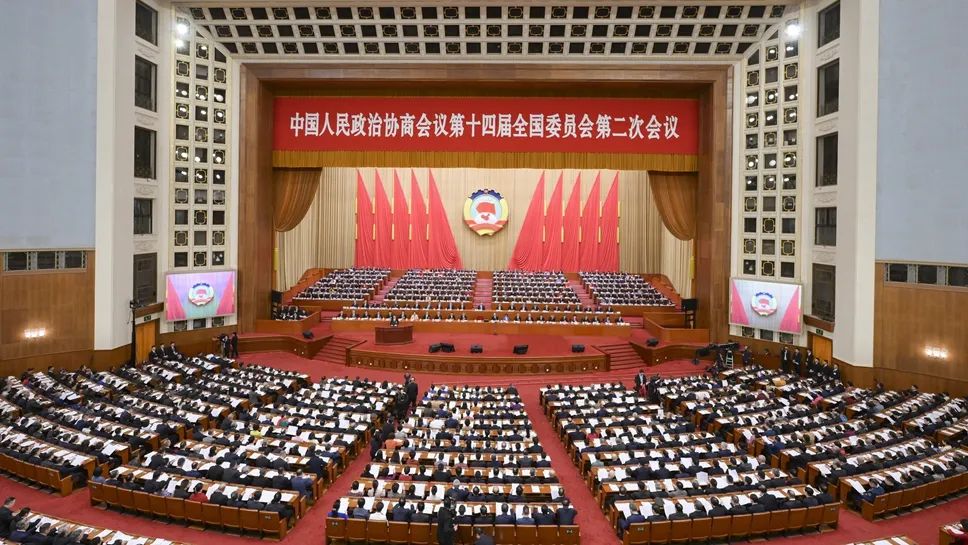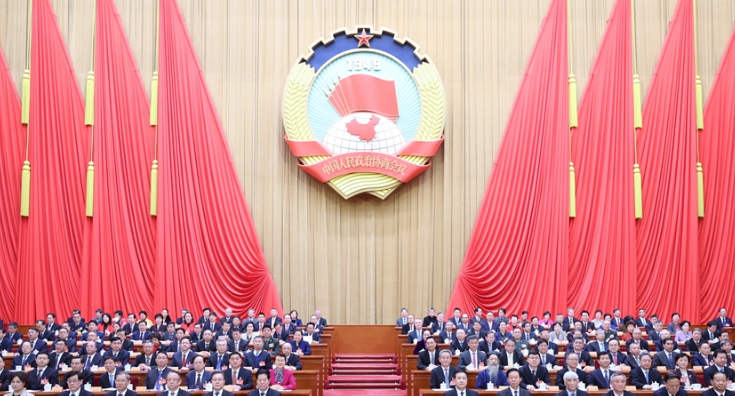
奥巴马再次当选总统:没能统一美国
我说,我不知道。但是这确实不是一个没有深度的问题。最近播出的《瞧这美国生活》(This American Life)节目就比较准确的描述了这种政治敌对情绪,这个节目关注了在最近几年内因为政治问题而失去亲密朋友的人。其中一个系列刻画了一个曾经患有致命性疾病的学生,最近,这段既往病史让他的不安全感油然而生,因为他的一位保守党朋友拒绝支持奥巴马医改计划,他觉得这位朋友好像不尊重他的生命,于是不再同这位朋友讲话。另外一位保守派人士则说,他不能再和一位故友聊天了,因为他深信这个朋友所支持的美国总统绝对是在摧残这个国家。还有两姐妹在激烈地争辩政治哲学问题后,完全不能达成一致意见,两个人都觉得对方很粗鲁而且摆出一副高人一等的姿态。
巴拉克·奥巴马刚刚获得连任,但是美国这个国家还处在痛苦的分裂之中,十几年来,它一直如此。从数字上看,这种分裂微乎其微,但是在意识形态和党派之争上却继续扩大。这就是让一个从大洋彼岸回望美国的人最感到震惊的事情:美国不断卷入双方得票不相上下的残酷竞选活动当中,也越来越因为左右党派之间难以化解的敌意而深受其害。
稍微想一想就会知道:这种现象异乎寻常。如果美国人确实分裂为两个完全不同的政治思想体系阵营,而且这两种政治思想还能够得到几乎同等数量选民的支持拥护,那该是一种多么不同寻常的巧合啊。上述情况本该是不稳定的。人口统计学数据显示,平分的局面是一定会被打破的,那么按理说,这两种政治思想获得同等支持的情况会很容易转变。但是美国这种双方势均力敌的分裂却似乎很稳定。这是怎么回事?
其实换一种角度说,美国的两个政党相对能够共存,他们争取的是中间派的投票,所以出现双方平分秋色的情况也是完全符合逻辑的。你应该会预料到,在由中间选民定理(在两党制中,政党表述施政纲领要吸引位于中间位置的选民,认为在选举中处于中间标度可以吸引左右两边的选民,并以此获得胜利——译注)的逻辑主导着的政治体系当中,两党在制定政策时会逐渐趋同,从而赢得中间派选民的支持。你还可以进一步提出,美国的政治状况就是如此。两党之间在政治上的实际争论发生在相对较窄的领域:最高边际所得税率是35%还是39.6%,覆盖既往疾病的医保体系是否强制参保,等等。但是,从意识形态上来说,这并不算是政治分歧。共和党人声称民主党人在这些问题上的立场是社会主义和国际化的倒退,而民主党人则把共和党人的立场看作是社会达尔文主义和军国主义。该如何终结这场双方势均力敌的民众信仰结构的激进分歧?
我的基本观点是,美国一直存在的、争执微小而又言辞激烈的党派分歧是由两大玩家——政党和媒体——相互作用所引发的现象。政党已经有了相当专业的宣传技巧;在这个信息时代,得到选民偏好数据越来越不是什么难事,招徕选民的技巧越来越高端,两党获得选票的能力也越来越接近。与此同时,不得不说的是,媒体的观点越来越偏激,它们力求打造惊心动魄的政治竞赛。平时对赛马赛事的报道使这些媒体报道有方,也能让竞选报道激动人心。大众媒体和社交媒体之间越来越多的相互作用似乎只是恶化了这种趋势:大众媒体分析师和私人社交媒体参与者都因为鲜明地塑造了两党的不同特点而受到表扬。我们正在目睹市场分割,大批的市场参与者意在使每一个细分市场规模相当。
但是大多数人并没有将这种党派偏见的愈演愈烈看成是不涉及道德的、纯粹结构上的现象,他们不知道自己是被组织的力量拖进了两个阵营,他们也并不觉得政治上争论的范围是非常有限的。双方都在怀疑,虽然另一方在大选中获胜并不会带来灾难性的政治后果,但是另一方的真实目的是给美国带来厄运。这导致了深刻的社会憎恶情绪。在社会上,民主党人和共和党人必须要小心翼翼、刻意为之,才能和对方和谐相处。一种彻头彻尾的敌意日益升级;尤其是共和党人,他们运用各种言论鼓动人们反对民主党人的工作议程,甚至可以为暴力抵抗提供智力支持。
我认为,美国人应当先把在接下来的四年里面临的政治问题放置一边,当务之急是找到和对手文明相处的办法。《瞧这美国生活》节目已经让一些作者参与进来,如《你不像我所想的那么疯狂》的作者——自由派的的菲尔·奈瑟(Phil Neisser)和保守派的雅各布·赫斯(Jacob Hess)来谈论他们是怎样做才寻找到跟对方交流的方法,并达成一致、允许对方在基本的哲学和道德问题上与自己有不同的见解。我们还需要付出更多诸如此类的努力。这次竞选让奥巴马获得连任,并让他重新拥有了民主党人组成的参议院和共和党人组成的众议院。在接下来的四年里,立法之争还是一场恶战。不论是共和党人还是民主党人,都不会改变他们对政治哲学的基本问题的整体看法。美国人的首要任务是寻找途径,在保留分歧的同时不要使国家分裂成为两大充满敌意、动用武力的阵营,甚至丧失了和对方交流的能力。
Barack Obama's re-election
A country divided
AFTER a panel discussion on the US elections hosted by a Dutch radio station the other night, I got to talking to a fellow American who's looking for work stateside. His Dutch government-funded job had been eliminated by austerity measures, so he was trying to convince his wife of the virtues of moving back to America. The main reason he was hesitating was the mood of vicious and increasingly entrenched political animosity. "Do you get the feeling," he asked, "that it could get violent?"
I said I didn't know. But it's certainly not a silly question. A recent broadcast of "This American Life", which focused on people who have lost close friends in recent years over politics, seemed to capture the mood pretty accurately. One sequence portrayed a student with a life-threatening pre-existing condition that until recently rendered him uninsurable, who has stopped talking to a conservative friend who refuses to support ObamaCare because he said it felt as though the friend didn't value his life. A conservative man describes being unable to continue talking to a former friend who supports a president he is convinced is destroying the country. Two sisters can't agree on who is being rude and condescending to whom after a furious falling-out over political philosophy.
Barack Obama has just won re-election, but America remains a country bitterly divided, as it has been for well over a decade. The divide is simultaneously very narrow in numerical terms, and gaping in ideological or partisan terms. This is what strikes one most strongly looking back at America from across an ocean: the country seems repeatedly embroiled in savage 51-49 electoral campaigns, and it seems to be increasingly paralysed by irresolvable rancour between right and left.
And think about it for a second: this is bizarre. If Americans are in fact divided between two extremely different political ideologies, it would be an extraordinary coincidence if each of those philosophies were to hold the allegiance of nearly equal blocs of support. That situation ought not to be stable. Adherence to these two ideologies ought to shift enough just due to demographics that the 50-50 split should deteriorate. And yet the even split seems to be stable. What's going on?
To put this another way, it's entirely logical to get a 50-50 split in a country where two relatively compatible political parties are competing for centrist votes. In a system governed by the logic of the median-voter theorem, one would expect to see the parties converging in policy terms to win the allegiance of voters in the centre. And you can even make a case that this is, in policy terms, what has happened in America. Realistic arguments over policy take place on relatively narrow terrain: they are arguments over a top marginal tax rate of 35% or 39.6%, over a health-insurance system with guaranteed coverage for pre-existing conditions but with or without a mandate, and so forth. But in ideological terms, this is not what the political divide looks like. Republicans construe the Democratic positions on these questions as socialism and international decline. Democrats construe the Republican positions as social darwinism and militant imperialism. How you do end up with a populace split evenly between these radical belief structures?
My basic take is that the stable, narrow, bitter partisan divide in America is a phenomenon driven by an interaction between two major players: the parties themselves, and the media. Political parties have achieved a staggering level of professionalism; the increasing availability of voter preference data and increasing sophistication of recruitment techniques in the age of information technology are likely to result in convergence between their abilities to secure their vote shares. The media, meanwhile, and this can't be repeated often enough, is overwhelmingly biased towards producing exciting political races. Horse-race reporting gives the media the collective ability to shape the kind of narrative it needs in order to report excitingly. The increasing interaction between mass media and social media seems only to exacerbate this tendency: both mass-media analysts and private social-media contributors are rewarded for sharply divisive characterisations. We're seeing market segmentation in which a number of players have an interest in keeping the segments at equal sizes.
But most people don't view the increase in partisanship as a morally neutral, structural phenomenon in which they're being driven into two camps by organisational forces. And they don't see the policy argument as being a narrow one. The suspicion on both sides is that, while the results in policy terms if the other side wins the election may not be catastrophic, the other side's true aim is a vision of America that is anathema to one's own. And this leads to a social antipathy that can be quite profound. It increasingly takes a conscious effort for Democrats and Republicans to be socially at ease with each other. There is an increasing level of outright hostility; on the Republican side especially, the arguments that have been deployed to rally opposition to the enemy's agenda provide intellectual support for violent resistance.
Setting aside the policy issues we're facing over the next four years, I think the most immediate need is for Americans to find a way to live civilly with each other. "This American Life" brought on a pair of writers, liberal Phil Neisser and conservative Jacob Hess, who've written a book ("You're Not as Crazy as I Thought (But You're Still Wrong)") about their efforts to find a way to talk to each other and agree to disagree on fundamental philosophical and moral issues. There need to be a lot more similar efforts along these lines. This election has put Barack Obama back in office, and returned him a Democratic Senate and a Republican House. Over the next four years, legislative battles are going to continue to be savage and hard-fought. Neither conservatives nor liberals are going to change their minds en masse about fundamental issues of political philosophy. The top priority is for Americans to figure out a way to keep these divisions from dividing the country into two hostile armed camps that are incapable of talking to each other.
 经济学家
经济学家
 2012-11-10
2012-11-10
 经济学家
经济学家
 432次
432次


 点赞(0)
点赞(0)

 收藏
收藏

 收藏资讯
收藏资讯

 收藏资讯
收藏资讯

 收藏资讯
收藏资讯

 收藏资讯
收藏资讯